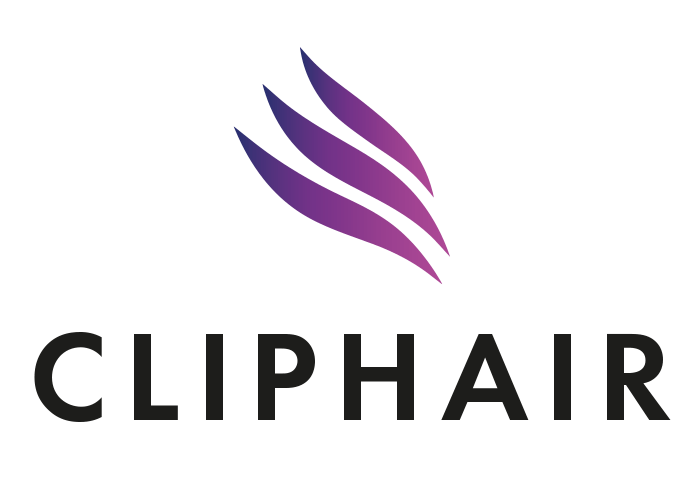How to Stop Greasy Hair
by SHOPIFY API / OCT 9, 2024
Reading Time: 5 Minutes
Are you tired of constantly battling with greasy hair, no matter what you do? Whether you've tried countless greasy hair tips or are just diving into the world of how to make hair less greasy, you're in the right place! Dealing with an oily scalp can be frustrating, but fear not — there are effective ways to reduce oily hair and achieve the fresh, bouncy hair extensions you crave. Let's explore the best hair care for oily scalp and uncover the secrets to maintaining beautifully balanced locks. Get ready to say goodbye to grease and hello to confidence!
In the meantime, if you need to keep those greasy locks at bay, why not shop our hydrating conditioner? Our haircare collection is paired perfectly when used with our premium tape in hair extensions.
1Why Does Hair Get Greasy?

Greasy hair is most often brought on by a build-up of excess sebum, our naturally produced oil from the scalp. Sometimes, due to genetic or environmental reasons, sebum-secretion is kicked into overdrive, resulting in an overproduction that can leave our skin and hair feeling oily. Greasy hair causes can range from hormonal imbalance to everyday product use. How often you wash your hair, the types of products you use, and how you style your hair can all contribute to greasy locks. See below for the best ways to fix greasy hair and keep your tresses happy and healthy.
210 Tips for How To Stop Your Hair From Getting Greasy
Why Is My Hair Greasy After Washing It? Easy on the Shampoo!
Not sure how often you should wash your hair? A good rule of thumb is about every other day. Interestingly, over-washing (and over-shampooing) can actually stimulate the oil glands to keep producing more and more oil, resulting in an oily scalp and greasy tresses. It’s important to strike a happy balance between over-washing and under-washing, which will be different for everyone.
Use a clarifying shampoo
If regular or dandruff shampoos don’t seem to be enough to calm the oiliness, try incorporating a clarifying shampoo occasionally. These are superb at eliminating build-up from hair products and mineral deposits from hard water. Use a clarifying shampoo about once or twice a month to see the optimum grease-busting effect. Just watch out if you have sensitive skin or colour treated hair, as clarifying shampoos tend to be harsh in action.
Only condition the ends

Why is my hair greasy after washing it? You may be over-conditioning. Never apply conditioner to your scalp, as that will only increase product build-up, which will, in turn, make your hair oily. A good way to think about conditioner and shampoo: conditioner is for the hair; shampoo is for the scalp. Don’t avoid conditioning completely, however, as conditioning is an important part of how to train your hair to become less oily. Choose a conditioner that has moisturizing properties. This will train your scalps sebaceous glands to not produce as much oil.
Have a warm shower
Did you know water temperature can affect the greasiness of your locks? Boiling-lobster-esque hot water parches your hair and scalp, triggering it to produce more oil. Hair greasy after washing? Warm water showers will open your cuticles and cleanse efficiently, a switch to cool water afterwards will close your cuticles and prevent excess oil secretion.
Find the perfect hairbrush

The right hair brush you can actually remove and distribute the oils on your scalp so that your roots appear less greasy. Boar bristles brushes (or faux boar bristle brushes, if you’re vegan products) are an excellent greasy hair fix, as the gentle fibres help to distribute the natural oils throughout the hair. Watch out for over-brushing, as this can stimulate oil production. All hair is different, so finding the right brushing balance can do wonders for greasy locks.
How To Prevent Greasy Hair? Do an Apple Cider Vinegar Hair Rinse (or other treatment)

Apple cider vinegar is chock-full of properties that can be nourishing and healing for the hair. While apple cider vinegar—like a clarifying shampoo—removes product build-up, it has the also has healing properties for the scalp. Most importantly for this blog, it can control scalp oil secretions and maintain healthy locks.
Other treatments that can fix greasy hair are drying treatments such as baking soda rinses, Epsom/sea salt and talc-free baby powder (acts as dry shampoo).
Clean up your diet
You are what you eat; eating a greasy takeaway every day – while delicious – will only make your locks greasy in turn. If your hair gets greasy fast, consider switching up your diet. Fruits, vegetables, and plenty of water are key ingredients for maintaining healthy hair and banishing greasy scalps. Adding vitamin B2 and B6-rich foods to your diet like seaweed and leafy greens (kale, spinach, or kelp) will aid in the decrease of sebum production.
Master the Blow-dry

While over-drying your hair is likely to parch your tresses, blow drying (in moderation) can be helpful if you want to get rid of greasy hair. Blow drying hair can help to eliminate greasy build-up as the heat absorbs the scalp’s oils. Drying the hair at the root can plump the hair follicle which can, in turn, absorb oil.
If you do choose to blow dry, make sure you use the lowest heat setting possible to avoid heat damage and ALWAYS use a heat protectant.
Stop touching your hair
I feel personally attacked by this point… Does your hair get greasy fast? Unsurprisingly, over-touching your hair can stimulate sebum secretion. Additionally, your hands are covered in a huge amount of oily residue. Touching those tresses is a sure-fire way to transfer oil from your fingers to your follicles.
To Dry Shampoo, or Not to Dry Shampoo
While dry shampoo is perfect for a mid-day, greasy hair quick fix, over-use can exacerbate the troub-oil. Too much dry shampoo causes product build-up in the scalp, which contributes to excess grease and oil secretion. If you’re substituting too many hair washes for dry shampoo, try cutting back on the quick fix and washing your hair slightly more often. This will not only help rid your hair of all that oil you’re trying to cover up, but also reduce harmful product build-up.
3Conclusion
Now you know how to keep hair from getting oily, managing greasy hair doesn't have to be a daily struggle! By implementing these tips to prevent greasy hair and incorporating Cliphair greasy hair solutions, you can maintain a fresh and voluminous look throughout the day. Start with choosing the best shampoo for oily hair and consider washing your hair less frequently to allow your scalp to regulate its natural oils.
Incorporate dry shampoo as needed to absorb excess oil between washes and adopt a gentle approach to hair care for oily hair by avoiding heavy products and excessive touching. With these simple adjustments, you can enjoy hair that looks and feels revitalised, effortlessly keeping oiliness at bay.
Ready to banish greasy hair for good? Discover our Quench The Thirst haircare collection, including the best shampoo for oily hair Cliphair has designed to keep your hair extensions fresh and clean all year round!
4FAQs
What are the common causes of greasy hair?
Greasy hair is most often brought on by a build-up of excess sebum, our naturally produced oil from the scalp. Sometimes, due to genetic or environmental reasons, sebum-secretion is kicked into overdrive, resulting in an overproduction that can leave our skin and hair feeling oily. Greasy hair causes can range from hormonal imbalance to everyday product use.
Which shampoos are best for controlling greasy hair?
Cliphair’s deep moisture shampoo is ideal for dry tresses craving extra hydration, so if you’re finding that your hair is a little too moisturised, then a shampoo alternative specifically designed and formulated for tackling greasy hair may be best.
Are there lifestyle changes that can help prevent greasy hair?
Interestingly, over-washing can stimulate the oil glands to keep producing more and more oil, resulting in an oily scalp and greasy tresses. It’s important to strike a happy balance between over-washing and under-washing, which will be different for everyone. If you’re washing your hair multiple times a week for work reasons or simply love washing your hair every day, this may be a lifestyle choice you’ll want to alter.
Excessive exercise or exposure to moist or humid climates are also lifestyle choices that can affect your hair’s health, so it’s important to stay on top of your washing and conditioning routine and to accommodate both your hair and your lifestyle in unison with one another as much as possible so your hair extensions can remain healthy.
What daily routines should I follow to keep my hair from becoming greasy?
Start by choosing the right shampoo and conditioner tailored for oily hair, like Cliphair’s Quench The Thirst haircare range. Wash your hair regularly with lukewarm water to avoid stimulating excess oil production and be gentle when shampooing to avoid over-stimulating your scalp. Consider using a clarifying shampoo once a week to remove buildup. Embrace the magic of dry shampoo on non-wash days to absorb any excess oil and add volume instantly. Lastly, try to avoid touching your hair throughout the day to prevent transferring oils from your hands to your hair. By following these simple yet effective routines, you'll be well on your way to maintaining a beautifully balanced mane every day!
Looking for flawless, salon-worthy hair without breaking the bank? At Cliphair, we’ve got you covered with luxurious clip in hair extensions for quick transformations and permanent hair extensions for long-lasting glam. Extensions require special care and maintenance to preserve their quality, which is why we have all the top-notch hydrating haircare products needed to keep your style on point.
Need the perfect shade? Browse our full range of human hair extensions in over 70 rich, silky shades or check out our FREE Express Color Match Service to ensure a seamless blend every time.







